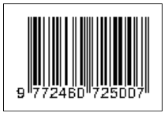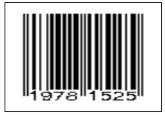Traditional Music Regional Classification using Convolutional Neural Network (CNN)
Raymond Luis(1*), Nur Rokhman(2)
(1) Bachelor Program of Computer Science, FMIPA UGM, Yogyakarta
(2) Department of Computer Science and Electronics, Faculty of Mathematics and Natural Sciences, Universitas Gadjah Mada, Yogyakarta
(*) Corresponding Author
Abstract
Traditional Indonesian music is an Indonesian cultural heritage that is often forgotten by modern society. Many people do not know which area the traditional music came from. This is a problem because of the large amount of traditional music that loses its identity. Deep Learning technology can be a solution to this traditional music classification problem. The topic of traditional music classification was chosen because there has been no research using this topic before.
This research will classify traditional music based on the area of origin using data from Youtube with the extraction method of the Mel-Frequency Cepstral Coefficients (MFCC) feature and the Convolutional Neural Network (CNN) classification model. There are 7 provinces that will be used as classification labels, namely Riau, Papua, Special Capital District of Jakarta, Special Region of Yogyakarta , North Sumatra, West Java, and South Sulawesi.
The classification system produced in this study produced good classification accuracy with a value of 74.03%.
Keywords
Full Text:
PDFReferences
[1] Rahmawati, “Makalah Pengaruh Globalisasi Terhadap Kebudayaan,” 2016, [Online]. Available: https://www.academia.edu/28879985/MAKALAH_PENGARUH_GLOBALISASI_TER HADAP_KEBUDAYAAN.
[2] C. N. Silla Jr., A. L. Koerich, and C. A. A. Kaestner, “A machine learning approach to automatic music genre classification,” J. Brazilian Comput. Soc., vol. 14, no. 3, pp. 7– 18, 2008, doi: 10.1590/s0104-65002008000300002.
[3] B. McFee et al., “librosa: Audio and Music Signal Analysis in Python,” Proc. 14th Python Sci. Conf., no. August 2020, pp. 18–24, 2015, doi: 10.25080/majora-7b98e3ed- 003.
[4] K. Choi, G. Fazekas, and M. Sandler, “Explaining Deep Convolutional Neural Networks on Music Classification,” 2016, [Online]. Available: http://arxiv.org/abs/1607.02444.
[5] A. L.-C. Wang, “An Industrial Strength Audio Search Algorithm.,” Proc. 4th Int. Soc. Music Inf. Retr. Conf. (ISMIR 203), Balt. Maryl. (USA), 26-30 Oct. 2003, no. January 2003, pp. 7–13, 2003, doi: 10.1109/IITAW.2009.110.
[6] J. S. Downie and S. J. Cunningham, “Toward a theory of music information retrieval queries: System design implications,” Proc. 3rd Int. Soc. Music Inf. Retr. Conf., pp. 13– 17, 2002.
[7] G. Tzanetakis and P. Cook, “Musical genre classification of audio signals,” IEEE Trans. Speech Audio Process., vol. 10, no. 5, pp. 293–302, 2002, doi: 10.1109/TSA.2002.800560.
[8] J. H. Lee and J. S. Downie, “Survey of Music Information Needs, Uses, and Seeking Behaviours: Preliminary Findings,” Ismir 2004, pp. 441–446, 2004, [Online]. Available: http://citeseerx.ist.psu.edu/viewdoc/download?doi=10.1.1.98.8649%7B&%7Damp;rep=r ep1%7B&%7Damp;type=pdf.
[9] A. Hossan, S. Memon, and M. A. Gregory, “A Novel Approach for MFCC Feature Extraction,” no. July 2014, 2011, doi: 10.1109/ICSPCS.2010.5709752.
[10] S. Davis and P. Mermelstein, “Experiments in syllable-based recognition of continuous speech,” IEEE Trans. Speech Audio Process., vol. 28, no. May 1980, pp. 357–366, 1980, doi: 10.1109/ICASSP.1980.1170934.
[11] A. P. Viswanathan, “Music Genre Classification,” Int. J. Eng. Comput. Sci., vol. 7, no. 1, pp. 8–13, 2016, doi: 10.18535/ijecs/v4i10.38.
Article Metrics
Refbacks
- There are currently no refbacks.
Copyright (c) 2022 IJCCS (Indonesian Journal of Computing and Cybernetics Systems)

This work is licensed under a Creative Commons Attribution-ShareAlike 4.0 International License.
View My Stats1







